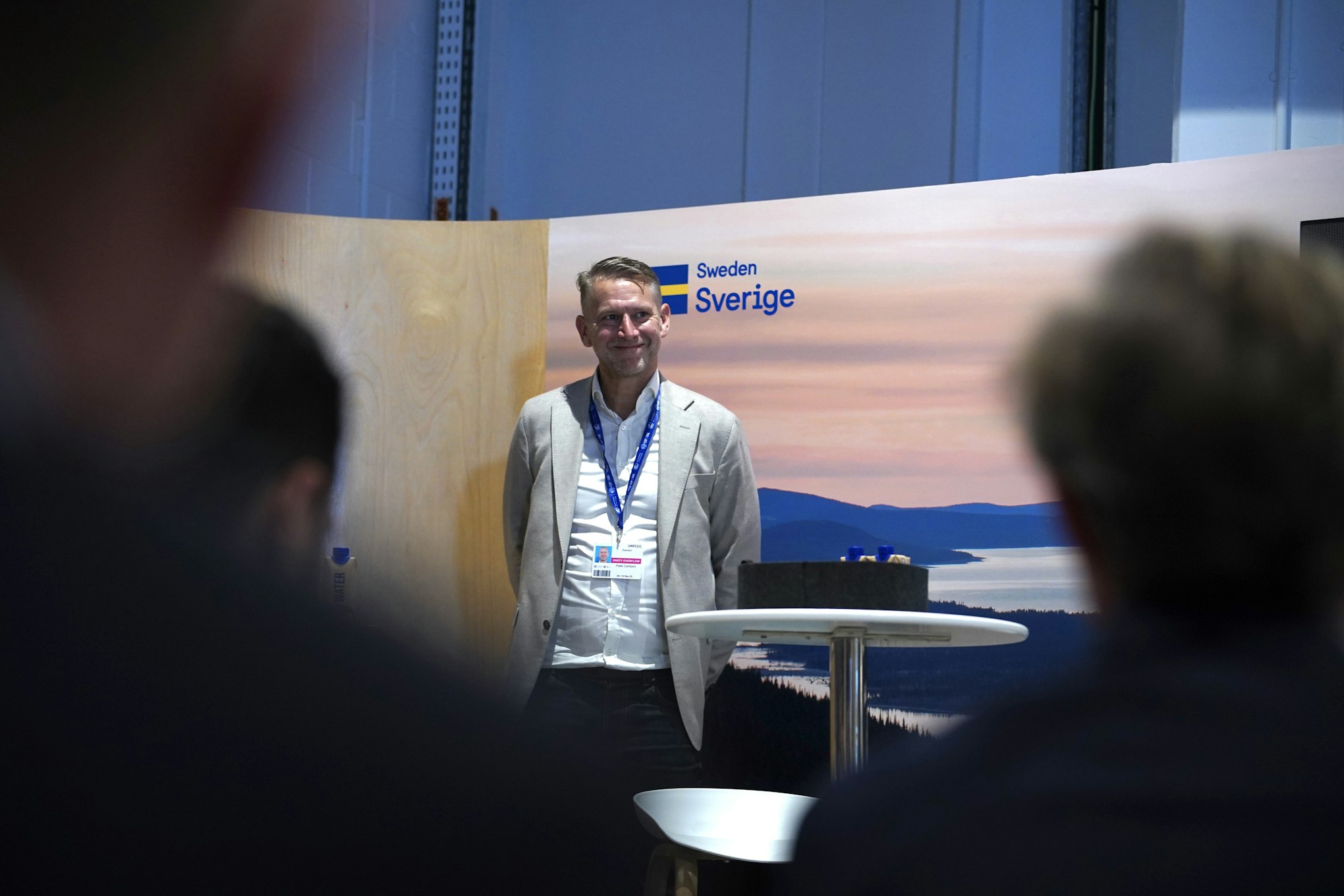The sodium-ion solution: insights from COP28
7 December, 2023
In a fireside chat at COP28, Northvolt's CEO and Co-Founder, Peter Carlsson, provided insight into our recently unveiled sodium-ion technology. Here’s the rundown on what was presented.

In November, Northvolt launched its sodium-ion battery technology. With validated energy density of 160 Wh/kg, the novel cell technology combines best-in-class energy density with an unrivaled level of sustainability at low cost, to enable the expansion of cost-efficient and sustainable energy storage systems worldwide.
At this year’s UN Climate Conference in Dubai, COP28, Northvolt CEO and Co-Founder Peter Carlsson presented an outlook on sodium-ion, and in a conversation with Anna Liberg, Global Head of Energy at Business Sweden, detailed how Northvolt came to embrace the technology, the breakthroughs enabling its use and the profound opportunities that would arise with a shift towards sodium-ion batteries.
In opening, Peter commented on the emergence of lithium iron phosphate (LFP) as a low-cost battery technology, albeit one with lower energy density than lithium-ion NMC, and how Northvolt had considered its adoption of the technology.
It was a notion which was quickly dropped, however, largely owing to concerns relating to the environmental costs attached to LFP, including its high carbon footprint and absence of an efficient recycling methodology. It was also considered a technology too firmly rooted in its home battery industry, and that its adoption would create too high a level of dependency on the existing supply chain.
"We did not feel [LFP] was sustainable," Peter emphasized during the chat.
As an alternative low-cost battery chemistry, Northvolt has since turned towards sodium-ion. Securing breakthroughs in battery design and manufacturing, the resulting sodium-ion technology has an energy density competitive with LFP.
What’s more, Northvolt’s sodium-ion battery also overcomes the sustainability concerns of LFP. Featuring a salt-based Prussian White cathode and a bio-based hard carbon anode, the technology entirely avoids use of critical metals, while boasting a significantly lower carbon footprint of 10-20 kg CO2 per kWh. This carbon footprint is a stark reduction in comparison with between 100-150 kg CO2 per kWh attached to comparable batteries.
Today, Northvolt is positioning sodium-ion technology as the foundation for its energy storage offering, where it will play a crucial role in enabling the proliferation of energy storage systems on a global scale. Compared to other battery technologies, sodium-ion batteries are inherently safer, requiring less cooling even at high temperatures. This feature makes them ideal for large-scale applications like solar parks, where safety and efficiency are paramount, particularly in the Middle East and Africa.
Considering the fundamental need for energy storage in a decarbonized society, Northvolt's decision to venture into sodium-ion batteries signifies not only a technological breakthrough, but a milestone in our continued ambition to enable global sustainable goals.
Watch the full fireside chat below: